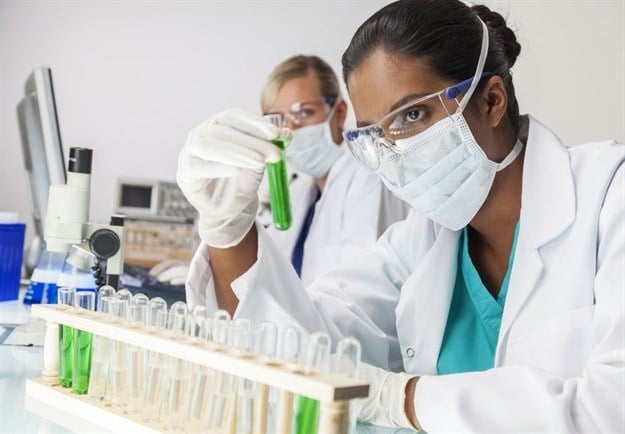
Top stories






More news

Marketing & Media
Warner Bros. was “nice to have” but not at any price, says Netflix

Logistics & Transport
Maersk reroutes sailings around Africa amid Red Sea constraints

















The new funding will be given through a call for proposals for Drug Discovery offering up to $100,000 per project to researchers in Africa to identify new drug candidates, particularly for malaria, tuberculosis (TB) and neglected tropical diseases. The programme also aims to create a network of drug discovery and development scientists in Africa and across the globe.
Recognised globally for its research in the fields of malaria and TB, the integrated drug discovery and development centre, H3D will be a key partner in the collaboration. The centre will provide opportunities to African partners to be immersed within its ongoing malaria and TB drug discovery projects as full project members, working from their home institutions.
“African-led innovation in drug discovery has historically been hampered by a number of factors, including but not limited to the absence of a critical mass of appropriately skilled scientists as well as poor access to infrastructure, enabling technology platforms and expertise. Therefore, there is a strong need to find sustainable solutions that build local capacity while getting the job done. This new programme does just that,” said Professor Kelly Chibale, founder of H3D.
H3D will also offer grantees the opportunity to use its infrastructure, technology platforms and expertise to fill gaps in their own environment.
The centre will provide project management support as well as guidance with the interpretation of data. Successful applicants will also be able to tap into H3D and the pharmaceutical industry’s scientist exchange programmes, enabling them to gain valuable additional skills.
The AAS, a pan-African academy of all sciences and home of Grand Challenges Africa (GC Africa), will provide scientific guidance and coordinate the programme.
“This opportunity should create a network of drug discovery and development scientists that will initiate, develop, share, evaluate and disseminate best approaches and practices within the research community in Africa,” said GC Africa programme manager, Moses Alobo.
This is the third call for proposals administered by the AAS’ Grand Challenges Africa, a scheme implemented through the AAS and the NEPAD Agency’s Alliance for Accelerating Excellence in Science in Africa (AESA).
"This partnership will benefit Africa by developing the capacity and augmenting efforts to discover and develop drugs for diseases that are prevalent on the continent and are otherwise being affected by a market bias that has seen drug discovery efforts on the continent hampered," said the AESA Director of Programmes, Professor Tom Kariuki.
Africa represents 17% of the world’s population but bears a disproportionate 25% of the global disease burden with sub-Saharan Africa carrying 90% of the global cases of malaria while 2.5 million who fell ill with TB in Africa in 2016 represented a quarter of new TB cases in the world.
Drug resistance is also compounding the disease burden requiring for Africa to build capacity and step up drug discovery activities.
“Medicines for Malaria Venture (MMV) is proud to support the effort to identify new drug candidates for malaria, tuberculosis and neglected tropical diseases via this call for proposals,” said Dr Timothy Wells, MMV’s Chief Scientific Officer. “At MMV, our focus is on bringing forward the next-generation of medicines to help defeat malaria. Through these grants, together with our partners, we aim to support the next-generation of African scientists to get involved in this endeavor for malaria as well as other diseases.”
The new funding will be given to projects that identify new chemical entities with potential for drug development in diseases of local relevance for Africa and to expand institutions' drug discovery research capacity. Selected applicants will also benefit from a network of drug discovery scientists in Africa and across the globe, linking them to peers, mentors and providing them with access to resources and technologies.
“The attractive aspect of this programme is that it focusses on highlighting and investing in those who are present on the continent. The partners involved are proactively seeking to identify and fund talented African-based scientists to succeed and not to merely survive. This will result in an effective increase in the numbers of productive and contributing African drug discovery scientists as well as an increase in the quality and impact of drug discovery science generated in Africa by Africans,” said Chibale.
View the call for proposals here.